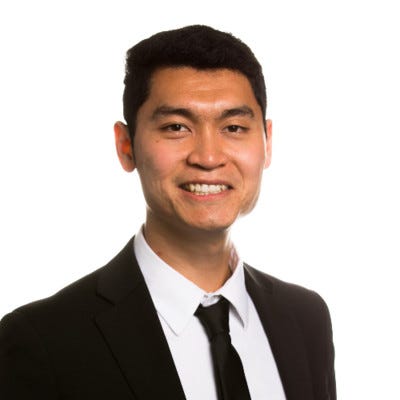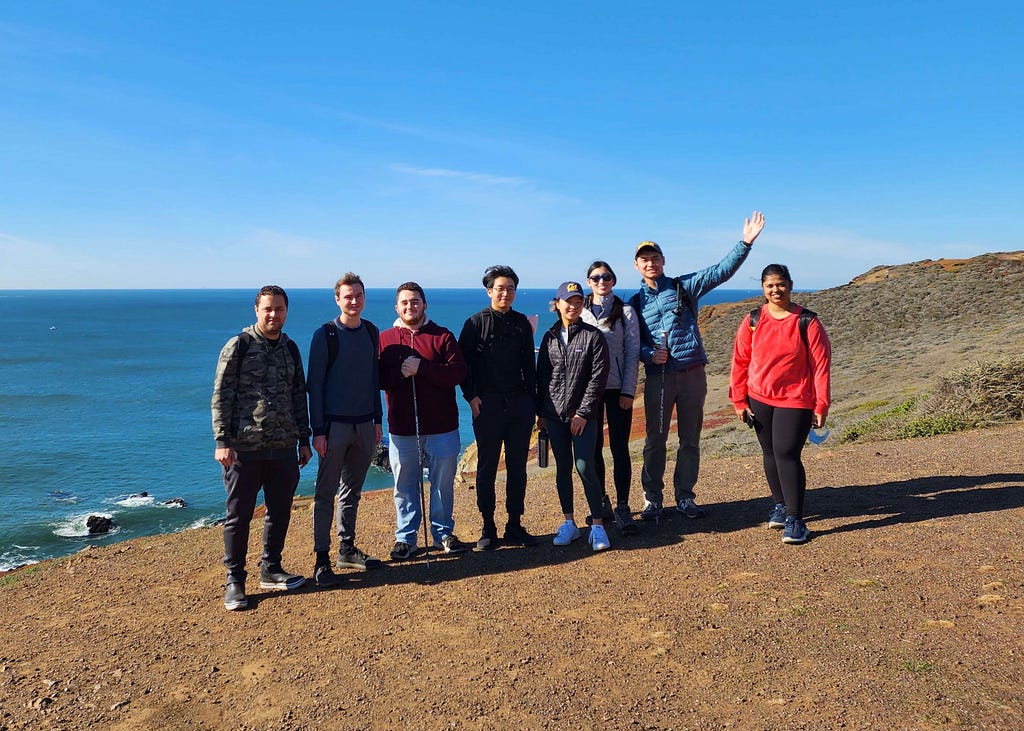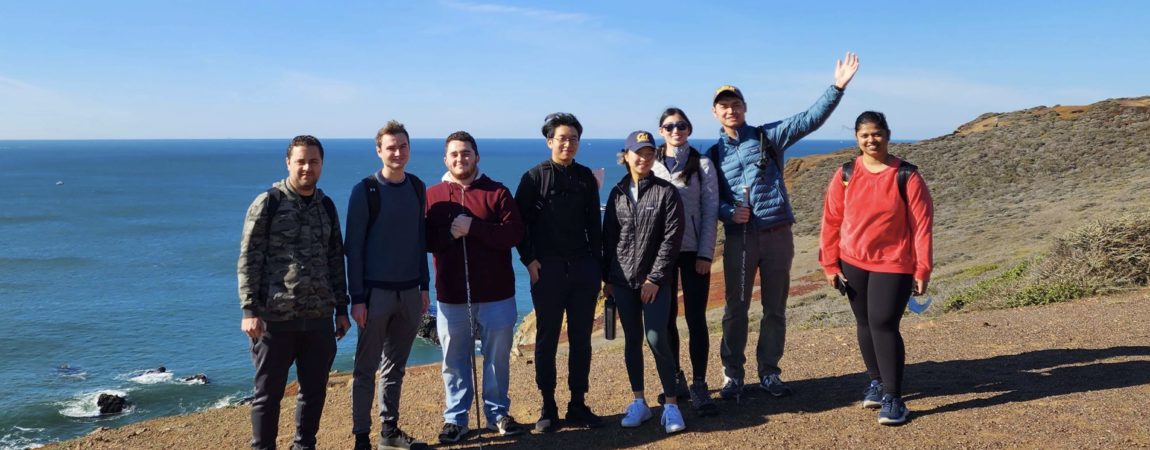On joining the MEng program after working in industry and his interests in sustainable energy
Johnny Ma, MEng ’23 (MSE), is currently pursuing an MEng in Materials Science & Engineering. He is a student leader for the Sustainable Energy Affinity group. Prior to UC Berkeley, Johnny earned a BS in Chemistry from UC Davis and worked professionally in battery engineering for 4 years at Quantumscape. Here, he shares insight into his experience in the Berkeley MEng program so far.
What led you to consider graduate school?
I worked in the battery engineering industry for several years prior to returning to graduate school. I am here to further my education, learn new skills that will advance my career, and network with diverse people. Berkeley’s MEng was the perfect program to do that.Did you contemplate weighing a MS/PhD vs. a professional master’s degree?
I never considered a PhD because I knew I am less interested in academic research and more in applied engineering. I’ve applied to other MS programs previously but did not attend to gain industry experience for a few more years.Why did you choose to apply to UC Berkeley for your MEng degree?
Berkeley’s MEng program was the most established and well organized of the three programs that I received admission for. The 9-month program duration was also appealing to return to industry quickly. The challenge is the fast-paced nature of the program and rigorous technical classes.What was it like becoming a student again after working in industry for four years?
As an undergrad, I didn’t have as much freedom to pursue my studies in areas I felt were interesting as much as a grad student. That is likely because the undergraduate education in the UC system is quite prescribed. However, since I have several years of work experience already, I know what kind of skills are in demand and the direction that certain technologies are going. This perspective helps me select my classes in grad school more intentionally. Being a student again is a special experience. I encourage everyone to take full advantage of being a student at Berkeley — with your status comes discounted performance arts events, free sports events, and many more cultural activities that members outside of this university community do not have regular access to.What’s it like balancing social, career, and academic priorities as a graduate student?
You must manage your time wisely: spend it on meaningful activities. When there are assignments or exams due, the academics takes priority. After stressful weeks, I like to have dinner with friends to unwind. This helps with the social aspect of the program, which is what you make of it. You can make a lot of friends in the program if you put in the effort.Can you tell us more about your interest in sustainable energy?
My humble journey with sustainability began in freshman year of college, when I interned at the student garden to help start up the program, first of its kind at UC Riverside. Next, I worked in the public sector for two years as a water conservation specialist to educate the public about the drought in California. Most recently, I was a Battery Materials Engineer at Quantumscape working on commercializing solid-state batteries for electric vehicles. My goals for the Sustainable Energy Affinity Group are to bring people together from culturally diverse backgrounds to create a socially engaging and intellectually stimulating community.
What’s your experience in leadership classes and the faculty teaching those courses?
The faculty that are teaching the leadership classes are quite diverse. So far, most of my instructors are high quality.What is your favorite tech and leadership course in the program and why?
My favorite courses so far are ME249 — ML Tools for Energy Applications and ENGIN270B — R&D Technology Management. I enjoy ME249 very much because it is experiential learning — students learn by doing projects. I am applying machine learning (ML) skills to interesting problems in energy that previously I did not have. This experience prepares me to re-enter industry with new skills. ENGIN270B was a boot camp class taught by Matthew Rappaport. He facilitated discussions well. Students read case studies and discussed implications in class. We learned from each other’s thoughtful comments. It was unlike any other learning experience I’ve had.Tell us what capstone project you are working on. What are some takeaways from the capstone experience that you have learned so far?
I identified my capstone project based on the skills I wanted to learn from the project. My capstone project is about designing nuclear micro-reactors (MMR’s) for desalination applications. To do this, we need to understand the thermal and electrical requirements of such a system, and conceptualize the technologies needed to deploy successfully. Our project scope is very broad, and we have an advisor that gives us a lot of autonomy. We have freedom to steer the project in any direction we like, so I am learning how to work in ambiguous environments when there are minimal directions. We will get a chance to use COMSOL for simulation next semester, so I am excited for that.“We have freedom to steer the [capstone] project in any direction we like, so I am learning how to work in ambiguous environments when there are minimal directions.”
What career services or programs have you taken advantage of so far while at Berkeley?
So far this year, I have attended the Fall Career Fair, Coffee and Connections, Affinity Group meetings, and Mobility Summit. The FI Career Development staff are also available to review resumes and offer job application advice.What’s one piece of advice you knew before joining the program?
Since I am coming from industry, I have experience with what kinds of skills are in demand and where the direction of certain technologies is headed. This gave me perspective to choose my classes wisely and focus on developing important skills during the MEng program. Besides advancing my education, I also focus on networking and spending time on quality activities.Where are you hoping to work after you graduate in May?
I plan to return to the battery industry to work with battery materials, cell engineering, systems engineering, or manufacturing. Connect with Johnny Ma.Q&A with Johnny Ma, MEng ’23 (MSE) was originally published in Berkeley Master of Engineering on Medium, where people are continuing the conversation by highlighting and responding to this story.


